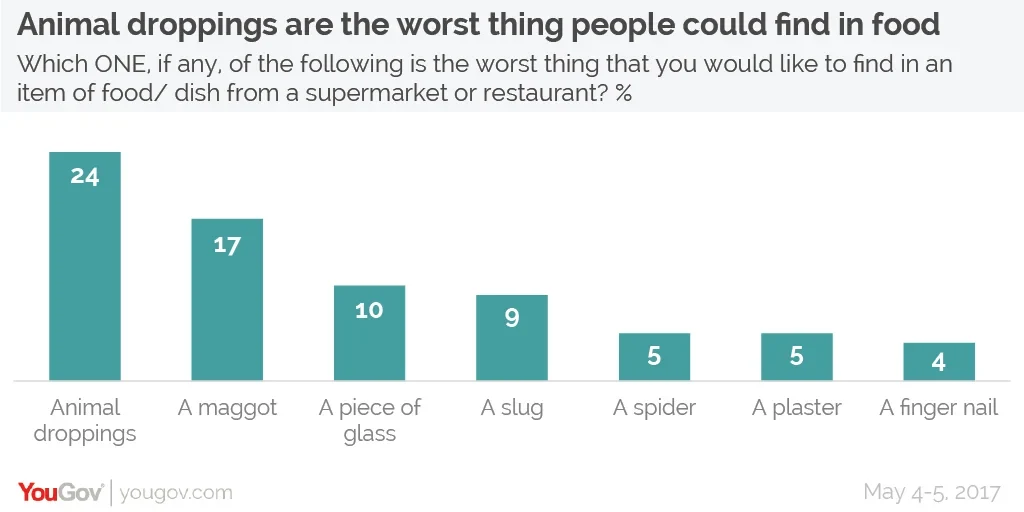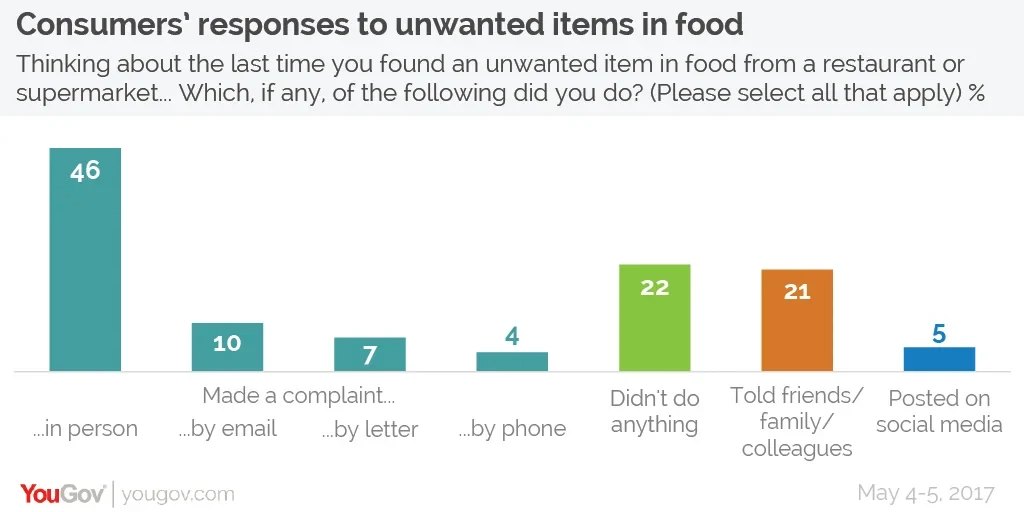Following the latest story of exotic insects hiding in supermarket fruit, YouGov looks at the worst things people could, and have, found in their food
Last week people across the country were revolted and terrified in equal measure when a mother in County Durham reported that her home had become overrun by spider hatchlings that had erupted from bananas she had bought at the supermarket.
Lurid tales of unwanted hitchhikers in people’s food are almost guaranteed to make the news, combining as they do the corruption of a universal joy – eating – with people’s fears of insects and other small creatures.
Now new YouGov research finds animal droppings voted the worst unwanted addition from a list of things Brits might find in their food. Almost a quarter of Brits (24%) chose this as the worst thing they could find in their food in a list that also included maggots (17%), glass (10%) and slugs (9%).

What they have found
Fortunately, very few Brits have ever experienced such horrors. Only 1% of people report having found animal droppings in supermarket food, for instance.
In fact, mould was the most commonly experienced unwanted addition in supermarket food, with nearly one in five Brits (18%) saying they have found it at one time or another. Coming in close behind in joint second are finding hair or finding a piece of plastic (16% each).
However, when it comes to eating in a restaurant, hair is by a long way the most likely unwanted hitchhiker in people’s food, with more than a third of Brits (36%) finding on their plate while eating out. The next most popular are a bug or a piece of plastic (both 5%)
In both cases – with supermarket and restaurant food – over four in ten (45-46%) Brits have never experienced finding something in their food that shouldn’t be there.
Making complaints
When it comes to what those who had ever found something bad in their food had done about it, the most common response is to complain in person at the store or restaurant. Even so, fewer than half of Brits complained in person (46%), although a further 10% complained by email, 7% by letter and 4% by phone.

A relatively limited proportion of people spread the bad news by word of mouth – only one in five (21%) of Brits told their friends, family or colleagues about the problem, and only 1-2% posted about it on social media.
People’s responses to finding nasties in their food varied significantly by age. Older people appear to be the more assertive, with the likelihood of a person complaining in person about something in their food rising with every age group, from 34% of 18-24 year olds to 54% of 55+ year olds.
By contrast, the younger someone is the more likely they are to tell their friends, family and colleagues about the problem. More than a third (37%) of young people complained to those near and dear to them, a figure which fell at each subsequent age group, reaching 11% of those aged 55 or older.
Store/restaurant responses
Half of people who made a complaint received an apology, with 40% receiving a refund. A further 21% received a gift card or vouchers, whilst an identical proportion were assured that the complaint was being dealt with and changes would be made in response.
Only 9% report not receiving a reply to their complaint, while a further 5% received a reply but without apology or compensation.
Photo: iStockphoto






